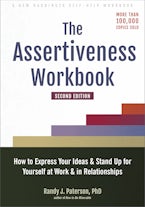Clients often feel misused—by their boss, their spouse, their family, their friends, and/or their society. They point out that: “None of this is my fault, so I shouldn’t have to be the one to change.”
In effect, our client is operating from a justice model. It is as though they are pleading their case before a court, and the party ultimately found guilty will be the one who is forced to change.
The challenge is that a therapy room is not a courtroom, and the guilty party is usually neither present nor inclined to alter their behavior. So long as change is the responsibility of someone else, the problem will persist, and the client will remain helpless.
The solution is to shift to an effectiveness model, which emphasizes personal agency and the idea that the person most distressed by a situation is the one best suited to intervene—whether or not they are at fault for the problem.
Here are six steps that clinicians can use to help clients make the shift from justice to effectiveness:
- Validate, where appropriate, the client’s sense of injustice. (“That doesn’t sound fair to me either.”)
- Reinforce the sense of helplessness they feel by reflecting all the efforts they have made to change the other person. (“You’ve tried ___ and ___ and ___ and they haven’t changed.”)
- Reframe the situation from justice to effectiveness. (“If you’re the one who wants it, you may have to take charge of the problem, even if that’s not fair.”)
- Identify the client’s own steps in the dance, and how these might change. (“How do you feel about loaning him the keys, knowing he never puts gas in your car?”)
- Empathize with the client’s frustration at having to act despite being the wronged party. (“Wouldn’t it be nice if they’d just been more responsible, so you didn’t have to figure all this out?”)
- Plan the change. (“So, what will you do this week to change your part in this?”)
Randy J. Paterson, PhD, is a psychologist, and author of How to Be Miserable and How to Be Miserable in Your Twenties. He is director of Changeways Clinic in Vancouver, BC, Canada; and provides training programs across Canada and internationally on evidence-based mental health practice. Learn more at www.randypaterson.com.



